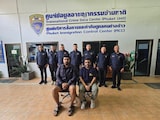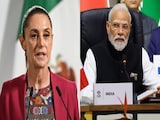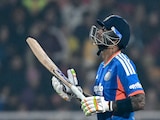CRED founder Kunal Shah has started a discussion around the advantages and disadvantages of working from home with one of his tweets. On Sunday, Mr Shah shared his take on the impact of work from home (WFH), saying that it could be "damaging" in the long run. Working from home became the norm during the coronavirus pandemic as several companies moved from traditional workspaces to digital ones in early 2020. Nearly two years later, as the world continues to battle the pandemic, many professionals are still working from home while others have returned to office.
In his tweet, Kunal Shah said that the impact of work from home on the youth is the same as the impact of studying at home on children. Elaborating on what the impact is, he said working from home did not foster real bonds or social skills.
"No real bonds. No real social or network skills. Illusion of understanding and learning. No osmosis," wrote the 38-year-old founder of fintech company CRED, adding that WFH was "comfortable but damaging in the long run."
The tweet has sparked a heated discussion on the microblogging platform. While many agreed with Mr Shah's take, others pointed out that the benefits of working from home far outweighed the disadvantages.
"People don't progress at the office by doing a mundane job. They progress by finding new exciting alternatives," wrote Kashif Raza, founder of Bitinning.
Others pointed out that work from home has translated into more opportunities for people in remote locations.
Meanwhile, others agreed with Mr Shah. "When you go to office, travel to work, meet people in person work with them, see them work, travel for work you learn millions of thing," a Twitter user wrote.
Prakash Mallya, Managing Director for Intel India's Sales & Marketing Group, wrote: "We are social beings and don't see the WFH to be a sustainable one in the long term."
Over the last two years, Kunal Shah has tweeted several times about the benefits and the drawbacks of remote work. On March 13, 2020, he wrote that "WFH is more productive for meetings. Virtual ones end sooner, are more focused, have less bakar."
Ten days later, Mr Shah said that juniors who learned by observing their seniors in officer were suffering because of WFH.
Where do you stand on this debate?















